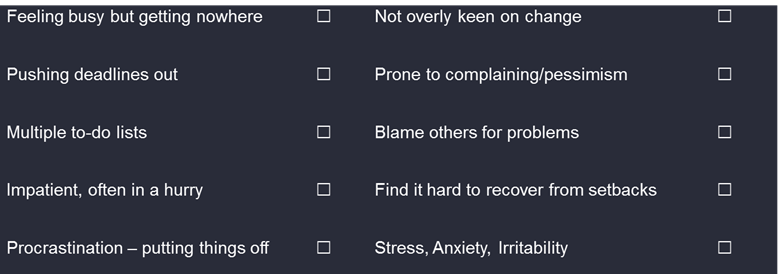Efficiency and effectiveness are second nature to internal auditors. The words are frequently used when evaluating controls and forming opinions on the activities of others. Yet how often are they internalised? What of your own efficiency and effectiveness?
It is possible to be efficient without being effective and vice versa:
- Reading a detailed manual to fix a leaking tap is effective although watching a two minute video is more efficient.
- Responding to emails quickly is efficient but reduces efficiency at completing any task in hand.
It is important to balance the skills and good performance evaluation processes focus on rewarding what has been achieved (effectiveness) and also how it was achieved (efficiency).
We explore effectiveness and provide ideas on how to work on what really matters.
Are you effective?
Being effective is about choosing the right things to invest your time in. There is nothing more disheartening than working really hard only to find you’ve made no progress, or to see the team diligently working but missing all their deadlines. No-one ever sets out to be a busy fool…
Typical warning signs for ineffectiveness include;

How many did you check? Do you see any of these traits in your team?
Everyday Ideas
This is not an exhaustive list or a tick list of things to work through. It is a collection of thoughts to offer practical advice on improving efficiency. Hopefully many will be familiar practices, if not they are ideas to try.
- Clarity. The first step towards effectiveness is having a purpose; be it personal, professional or organisational. Understanding the goals and objectives that need to be achieved is essential to avoid going off track. A good auditor doesn’t start an engagement without a scope of reference and the same logic applies to the use of your own time…even…